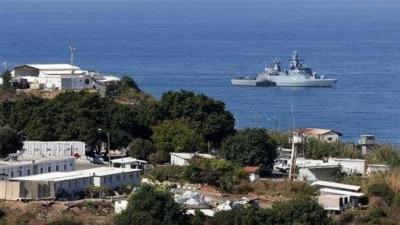The country is in anticipation of the upcoming visit from U.S. envoy Amos Hochstein, who is expected to arrive in Beirut on Thursday evening after a tour in European capitals and Tel Aviv. He will arrive with responses to the Lebanese remarks he heard during his last visit. The level of optimism emanating from the team of the President of the Republic has diminished, particularly from the Deputy Prime Minister Elias Bou Saab, who said from Baabda yesterday, "There is no extreme optimism or pessimism, but things are heading in the right direction," following discussions that an agreement could be reached in the coming weeks.
It is still unclear what proposals Hochstein will bring, but the main discussion revolves around granting Israel the Karish field in exchange for its concession on the Qana field for Lebanon. It is worth noting that there are no studies that determine the size of the gas wealth in the latter field, while there are confirmations of the presence of commercial quantities in Karish. Consequently, Lebanon is negotiating over a field whose reserves it is not aware of.
Lama Hariz, a member of the leadership council of the Progressive Socialist Party and someone following the demarcation file, indicated that "there is no information about the reality of what is happening in the negotiations, and everything being circulated is limited to the realm of media information. The negotiations are continuing away from the media, which is good if they are based on certain studies. It is also crucial to agree on a basket of files, including an agreement on gas extraction mechanisms or concepts regarding the companies that will extract it."
In a conversation with "Anbaa," Hariz pointed out that "Hochstein is expected to bring two proposals: the first is that the Karish field be exchanged for the Qana field, and the second is to modify line 23 to be winding. In this context, it should be noted that the Karish field contains four exploratory wells and two production fields, while no seismic surveys for the Qana field reveal the quantity of its wealth, which does not serve Lebanon."
Hariz emphasized that Lebanon's position should be based on studies and seismic surveys, and decisions should stem from that to protect its petroleum wealth, stating, "Lebanon's response should be according to this." She warned that "the winding line may deprive Lebanon of the advantage of extending a gas pipeline from block number 8 toward Turkey, as this block will be affected by the curves."
The next few hours might bring unexpected developments on multiple fronts, and as always, more can happen in the last quarter-hour than in years.




